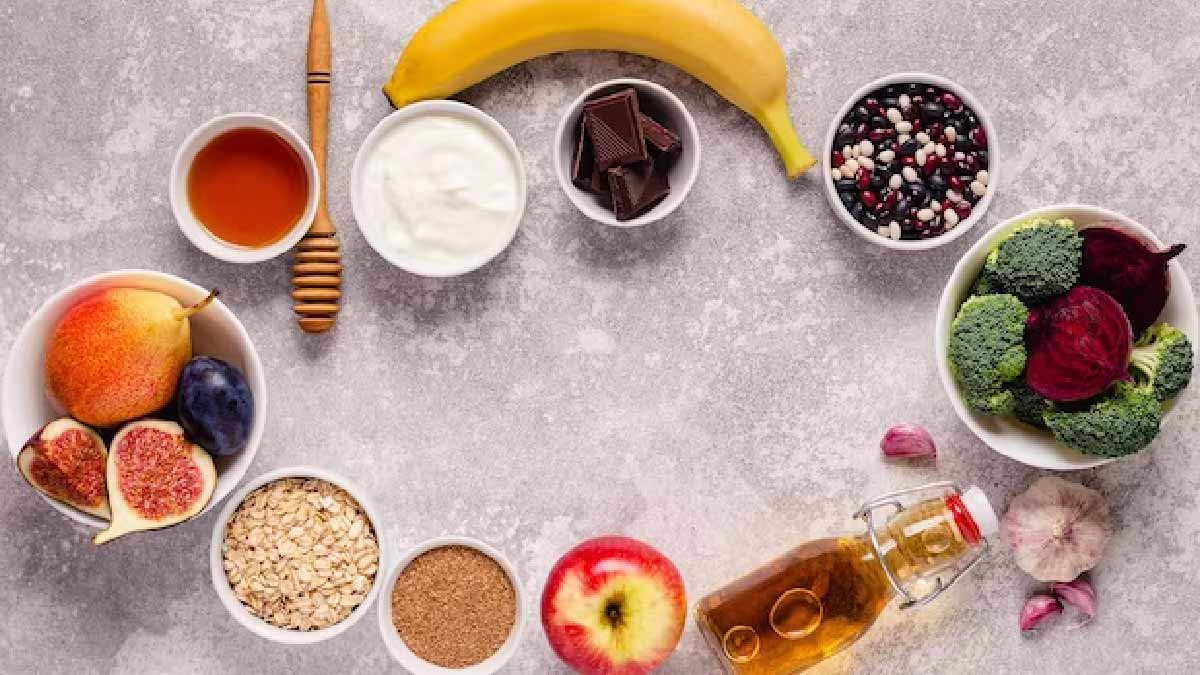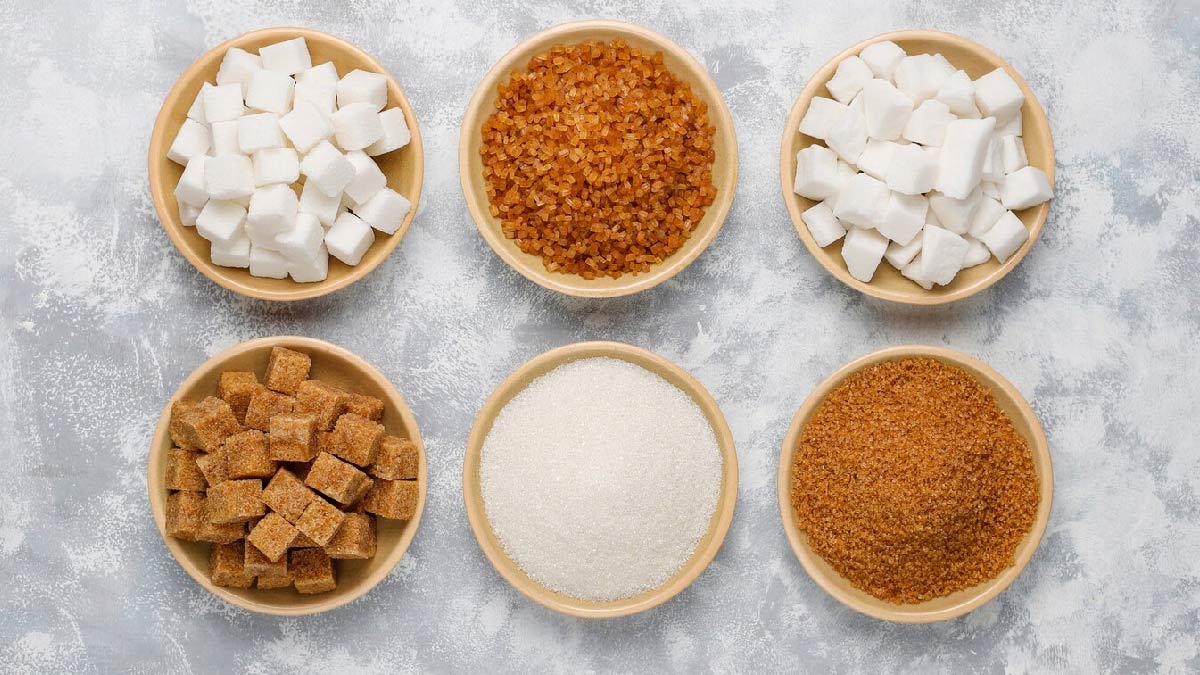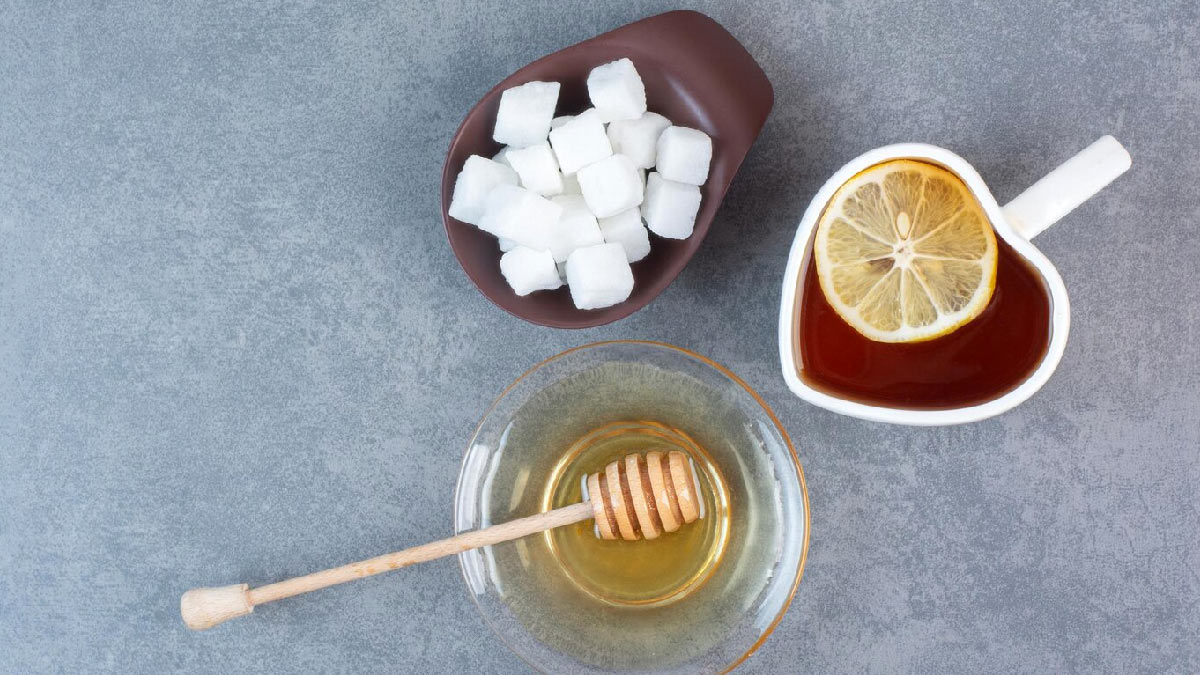
Sugar is an integral part of our diet. It is commonly derived from sugarcane or sugar beets and plays a vital role in enhancing the taste and experience of many foods and beverages. However, excessive consumption of sugar has been linked to a number of health problems, including type 2 diabetes, obesity, and dental issues.
Table of Content:-
To tackle the concern, many sugar alternatives, like honey, stevia, and agave, have been introduced in the market. While they are considered healthier than sugar, we asked Dr Bimal Chhajer, Formal Consultant at AIIMS and Director, SAAOL Heart Centre, New Delhi, whether they are actually safe to consume.
Also Read: Diabetes Diet: Expert Lists Seeds That Can Regulate Blood Sugar Levels
Are Sugar Substitutes Actually Healthy?

There are many factors that make sugar substitutes healthier than pure sugar.
While honey contains minerals, vitamins, and antioxidants and has a lower Glycaemic Index (GI) than refined sugar, blood sugar levels tend to rise slower with it, said Dr Chhajer.
The same goes for agave nectar, which contains natural sugars along with additional nutrients.
As far as stevia is concerned, it is said to offer sweetness with fewer or no calories, serving as an alternative for those seeking to reduce their sugar intake.
Other sugar substitutes, including erythritol, xylitol, and monk fruit, are also thought to be safe for the majority of people—including those with diabetes, according to the doctor.
However, natural sweeteners are still added sugars and therefore have a similar effect on the body as other added sugars, especially if not consumed in moderation, according to the American Heart Association (AHA). In general, added sugars can lead to an increased risk of a variety of chronic diseases, including obesity, Cardiovascular Disease (CVD), diabetes, and Non-Alcoholic Fatty Liver Disease (NAFLD), as well as cognitive decline and even some cancers, as reported in a study published in the journal Nutrients.
Key Considerations

When it comes to sugar intake, a few things should be considered:
- Be conscious of the sugars in your diet, both added and natural.
- Keep track of all the sugars you consume.
- Before buying unprocessed food, carefully read food labels to spot hidden sugar.
- Steer clear of added sugar sources, such as sugary drinks, cereals, and desserts.
Also Read: What Happens To Your Body When You Have Too Much Sugar: Side Effects
Choose Naturally-Occuring Sugars

While limiting your sugar intake is key to preventing chronic illnesses, it does not mean that you cut it out completely from your diet.
Instead of depending on added sugars or processed foods, focus on getting your sugar from naturally occurring sugar sources, such as fruits, vegetables, and dairy products.
“These foods include a range of minerals, fibre, and antioxidants that are important for general health in addition to providing needed sugars,” said Dr Chhajer.
In general, while men can treat themselves to 9 teaspoons (36 grams or 150 calories) of sugar a day, women can consume 6 teaspoons (25 grams or 100 calories) of sugar per day, according to the doctor. However, note that the appropriate daily consumption of sugar might change depending on age, gender, degree of physical activity, and general health.
Also watch this video
How we keep this article up to date:
We work with experts and keep a close eye on the latest in health and wellness. Whenever there is a new research or helpful information, we update our articles with accurate and useful advice.
Current Version